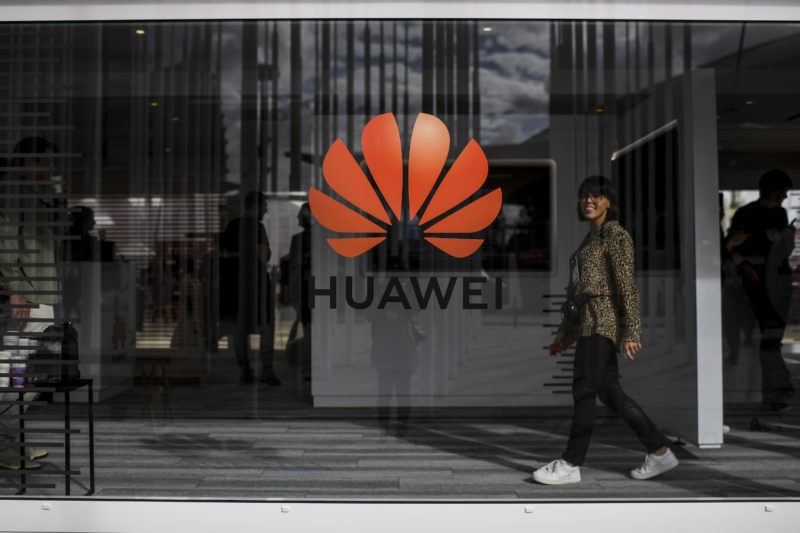Huawei, barred in US, offers app inducements in Europe
Chinese telecom giant Huawei is on a charm offensive at the biggest European tech gathering, the Web Summit in Portugal (PATRICIA DE MELO MOREIRA)
Lisbon (AFP) – Blacklisted in the United States, Chinese telecoms group Huawei is on a charm offensive at Europe’s biggest tech gathering, wooing app developers to embrace its own operating ecosystem.
Having this week announced plans to spend $40 billion on European supplies, after being shut out of buying US-made chips and technology, the company has been a prominent player at the Web Summit in Portugal.
Never mind US allegations that its products — especially in 5G networking — offer back-door access for Chinese spies: Huawei’s stand has pride of place at the pavilion entrance and its current chairman, Guo Ping, gave the keynote address during Monday’s opening night.
Huawei executives held an afternoon-long briefing for about 300 developers for smartphone apps, followed by a dinner for those who had the stamina to hear more.
The message: Huawei can offer in-house expertise and price reductions to developers who have to pay a hefty chunk of their revenues in order to sell games and apps on Google’s Android and Apple’s iOS systems.
“We want to make sure that no developer feels left out or feels that the hurdle to enter our developer program is too high,” said Jervis Su, vice president of mobile services at Huawei.
It is part of a strategy to lessen Huawei’s reliance on US supplies and technology, following the offensive launched on the company by President Donald Trump’s administration amidst a Sino-US trade war.
Huawei hotly denies it is in cahoots with Chinese intelligence, and has been building up a robust share of the next-generation 5G market in Europe and Asia.
Nevertheless, Huawei has for now lost access to Google services on its phones because of the US sanctions, and is working on an alternative operating system for a broad range of interconnected devices, called HarmonyOS.
Huawei, Guo noted, is investing $1.5 billion over five years on training programs in universities and startups around the world and another $1 billion to encourage innovation among developers — all with a view to extending its market penetration away from Washington’s reach.
“5G upgrades our communication infrastructure and AI (artificial intelligence) provides us with the most powerful computing engines,” he told the Lisbon conference.
“However, the applications and software are what generate true value.”
– Escaping the US vice –
On its smartphones, the Chinese group has its own App Gallery, which was launched in Europe last year and currently counts about 50,000 applications.
Adnan Selimovic, senior software architect at Austrian company TeleTrader, said Huawei had actively solicited his firm’s entry into the App Gallery.
“Then they asked us to collaborate further by integrating more functionalities like push notifications” and interactive widgets for mobile trading, he said.
TeleTrader already has separate development teams for its Android and iOS apps. The support of Huawei’s own developers meant it did not have to hire a costly third team.
To try to entice more games apps, Huawei has cut the commission it takes from developers for in-app purchases to 15 percent, half that charged by Google and Apple.
“Huawei is striving to escape the (American) vice they’re in,” commented Francois Candelon, a telecoms expert at Boston Consulting Group.
“In order to succeed in Europe, they are going to try to attract the maximum number of developers because they don’t have another choice,” he said.
Indeed, Washington’s offensive is deepening as regulators prepare to vote on November 19 on rules that would block US telecom carriers from buying supplies from Huawei and another Chinese tech firm, ZTE, and to remove any of their equipment already in place.
Disclaimer: Validity of the above story is for 7 Days from original date of publishing. Source: AFP.


